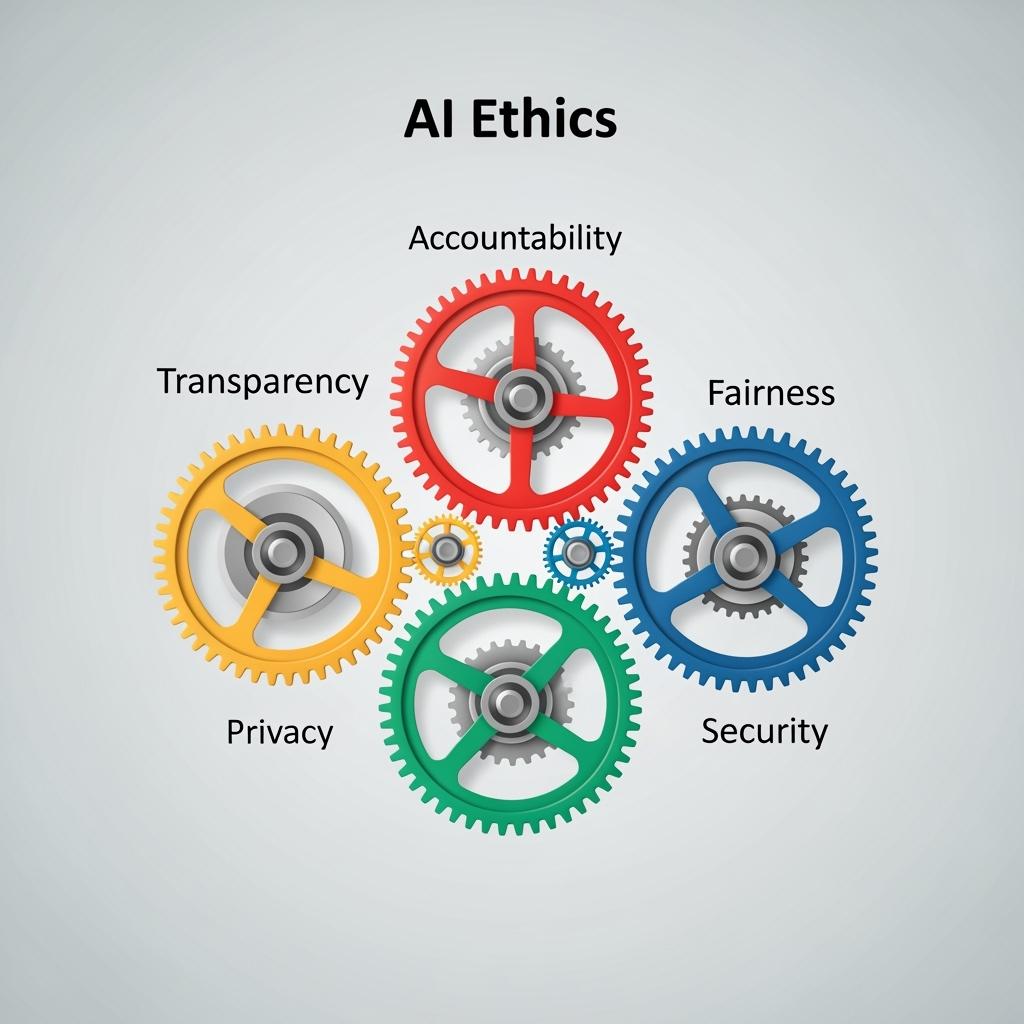Introduction
In today’s rapidly evolving tech landscape, AI Ethics in Tech has become a vital topic. Developers are crucial in influencing the future of artificial intelligence, and grasping these ethical aspects is vital. The focus on AI Ethics in Tech helps ensure that technology continues to serve humanity in a fair, transparent, and accountable manner.
As artificial intelligence systems increasingly permeate our everyday existence, it is imperative for developers to emphasize ethical practices. This article explores the five key considerations outlined in AI Ethics in Tech—principles every developer should keep in mind when working with AI technologies. By addressing these aspects, developers can contribute to a more responsible and ethical tech environment.
What Is AI Ethics?
AI Ethics is all about the rules, guidelines, and values that help us create, use, and manage Artificial Intelligence (AI) responsibly. It focuses on making sure that AI technologies are built and used in ways that are fair, safe, clear, and good with human values, rights, and societal well-being for everyone in society.
Key Principles of AI Ethics
1. Transparency
This openness enhances user trust in AI systems and elucidates how their data is utilized. Developers should strive to create algorithms that users can comprehend. This transparency fosters user confidence in AI systems and clarifies the utilization of their data. By sharing knowledge about the functioning of AI models, developers can cultivate an environment of transparency and responsibility.
2. Accountability
Developers are required to assume accountability for the results produced by their AI systems. This responsibility includes making sure that AI technologies do not reinforce biases or inflict harm. Establishing clear guidelines and protocols for addressing issues that arise from AI applications is essential. Developers should also engage in continuous learning to stay informed about the ethical implications of their work.
3. Fairness
Fairness in AI involves ensuring that algorithms do not discriminate against any group based on race, gender, or socioeconomic status. Developers should actively work to identify and mitigate biases in their data sets and algorithms. Implementing fairness checks during the development process can help create more equitable AI systems that serve all users fairly.
4. Privacy
Privacy is a critical consideration in AI ethics. Developers must prioritize user data protection and ensure that personal information is handled responsibly. Establishing strong data protection protocols and securing informed consent from users can contribute to the protection of privacy. By respecting user privacy, developers can build trust and encourage wider adoption of AI technologies.
5. Security
Guaranteeing security is paramount when developing AI systems. Developers need to establish robust security measures to safeguard AI applications against harmful attacks. Guaranteeing that AI systems can withstand threats not only safeguards user data but also upholds the integrity of the technology. Regular security assessments and updates can help mitigate risks associated with AI deployment.
Conclusion
In conclusion, understanding AI Ethics in Tech: 5 Crucial Considerations for Developers is essential for creating responsible and trustworthy AI systems. By focusing on transparency, accountability, fairness, privacy, and security, developers can contribute to a more ethical tech landscape. As AI continues to evolve, prioritizing these considerations will help ensure that technology serves the best interests of society.
Recommendation
To implement these ethical considerations effectively, developers should engage in ongoing education about AI ethics. Joining professional organizations, attending workshops, and participating in discussions can enhance understanding. Additionally, collaborating with ethicists and diverse teams can provide valuable perspectives. By nurturing a culture of ethical consciousness, developers possess the capability to create AI technologies that positively impact society.
Frequently Asked Questions
1. What are the main ethical concerns in AI development?
The main ethical concerns include transparency, accountability, fairness, privacy, and security.
2. How can developers ensure fairness in AI systems?
Developers can promote fairness by recognizing biases within data sets and incorporating fairness assessments throughout the development process.
3. Why is transparency important in AI?
Transparency fosters trust among users by clarifying and elucidating the processes involved in AI decision-making.





